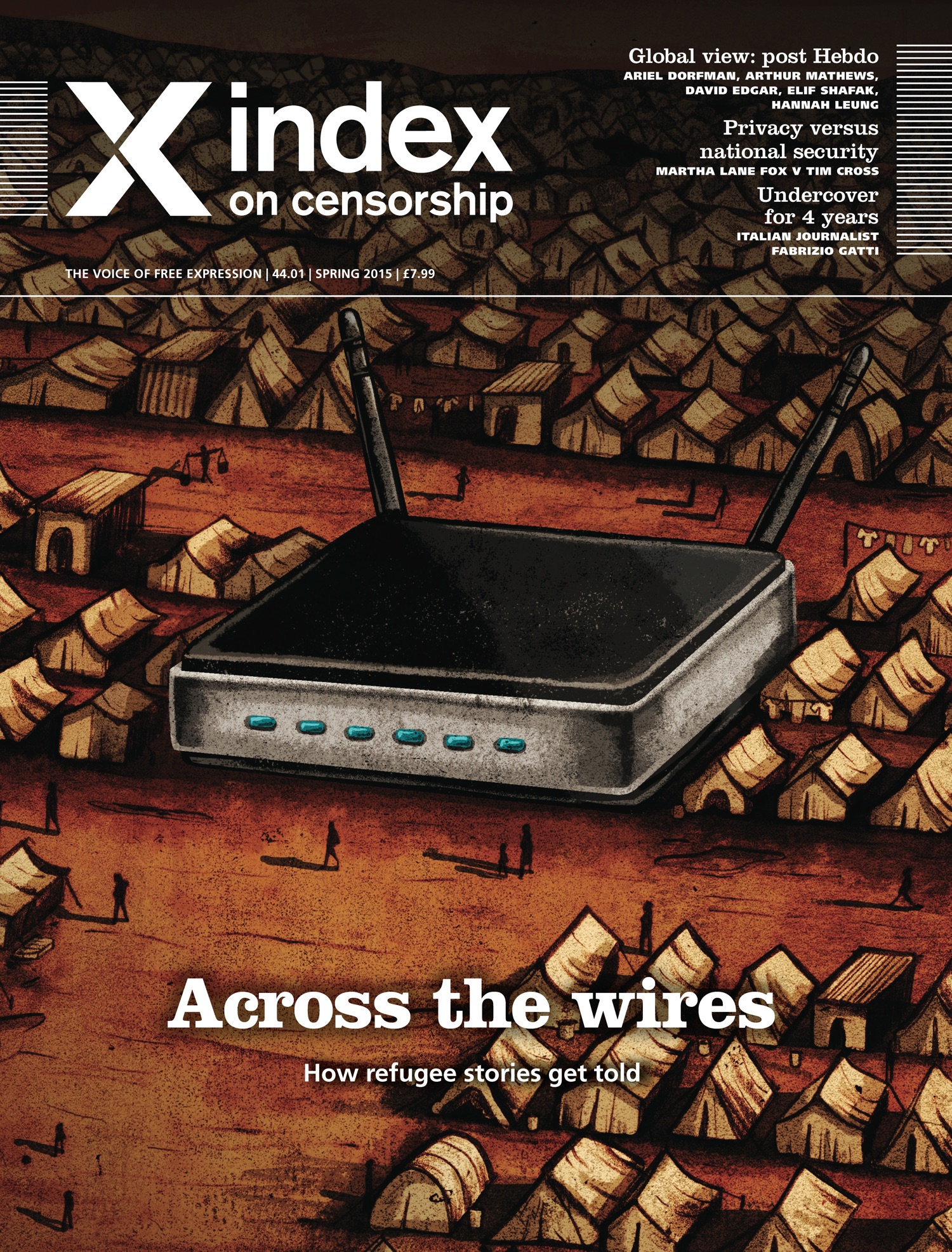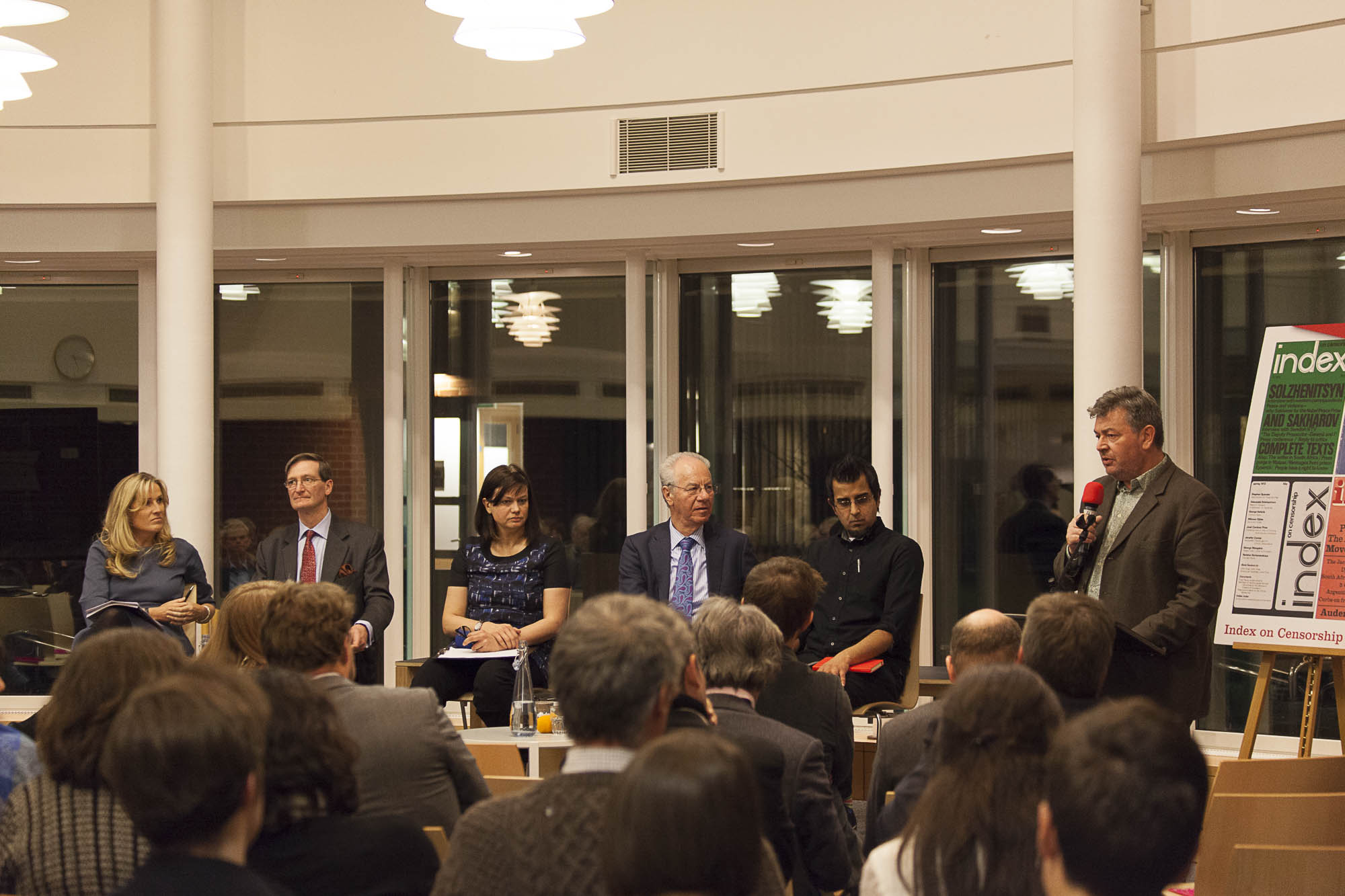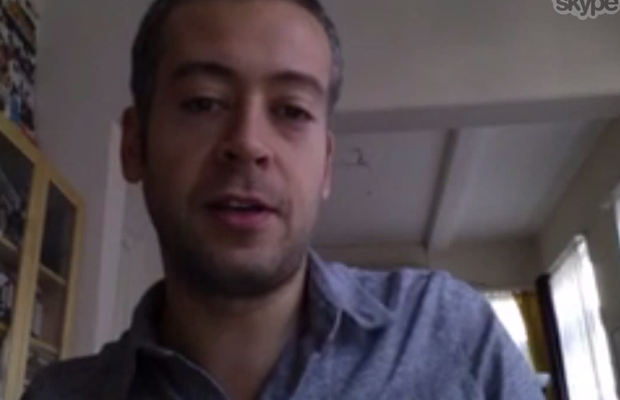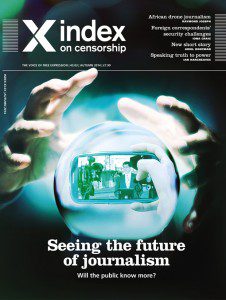Martha Lane Fox and retired Major General Tim Cross debate how far governments go when balancing individual rights and safeguarding the nation. This is an extract from a longer feature in the latest issue of Index on Censorship magazine


Martha Lane Fox and retired Major General Tim Cross debate how far governments go when balancing individual rights and safeguarding the nation. This is an extract from a longer feature in the latest issue of Index on Censorship magazine

Where people are living in fear a connected world can be frightening, it can carry gossip and information back to those who pursue them. Decades ago, when people escaped from their homes to make a new life across the world, they were not afraid that their words, criticising the government they had fled from, could instantly be broadcast in the land they had left behind.

The importance of free expression is as great as ever, as is the need to debate openly difficult issues – ones which may cause pain, offence, anger. Nobody ever said free expression was easy.

On the day when the four surviving copies of the original 1215 Magna Carta were briefly brought together for the first time, Index on Censorship held a debate to celebrate the launch of the winter issue of the magazine.

When England’s barons forced their King to sign the Magna Carta in 1215, it was an attempt to wrest absolute power from the monarch by his wealthiest subjects, those who already held position and fortune. It was by no means an equality drive, intended to spread rights to the common folk, but every journey begins with a single step, and every action has unintended consequences.

In his own inimitable short-form style, John Crace takes a tongue-in-cheek trip throughout the history of the Magna Carta and its manifestations.

In the Winter 2014 issue of Index on Censorship magazine, Andrei Aliaksandrau investigates the new information war as he travels across Ukraine

[vc_row][vc_column][vc_custom_heading text="Packed inside this issue, are; an interview with fantasy writer Neil Gaiman; new cartoons from South America drawn especially for this magazine by Bonil and Rayma; new poetry from Australia; and the first...

Turkish novelist and contributing editor for Index on Censorship magazine, Kaya Genç, gives a short interview about the intimidation of female journalists in Turkey, read his full report in the winter issue

In September, Index on Censorship magazine launched a social media campaign which invited its readers to nominate a place which was symbolic of either free speech or censorship, with the winning locations being granted free access to the magazine...
A quarterly journal set up in 1972, Index on Censorship magazine has published oppressed writers and refused to be silenced across hundreds of issues.
The brainchild of the poet Stephen Spender, and translator Michael Scammell, the magazine’s very first issue included a never-before-published poem, written while serving a sentence in a labour camp, by the Soviet dissident Aleksandr Solzhenitsyn, who went on to win a Nobel prize later that year.
The magazine continued to be a thorn in the side of Soviet censors, but its scope was far wider. From the beginning, Index declared its mission to stand up for free expression as a fundamental human right for people everywhere – it was particularly vocal in its coverage of the oppressive military regimes of southern Europe and Latin America but was also clear that freedom of expression was not only a problem in faraway dictatorships. The winter 1979 issue, for example, reported on a controversy in the United States in which the Public Broadcasting Service had heavily edited a documentary about racism in Britain and then gone to court attempting to prevent screenings of the original version. Learn more.